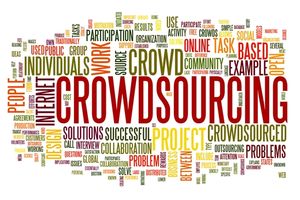Think of this as Volume 18, Number 37 of the newsletter I have written weekly since March, 1997. Enjoy.

My son is now the same age I was in 1978. He’s 23. His ambition is to become a scientific researcher. He will get his biology degree next spring and is looking for a graduate program. (If you want a German-Irish Atlantan who can speak to your Chinese and Arabic-speaking grad students, drop a line.)
Until recently I naively figured there was no way he’d run into the same kind of business model problem, and intransigence, I did in my life. I was wrong.
As a recent NPR piece showed biomedical researchers are addicted to a single business model, applying for (and somehow getting) government grants to support basic research. This is unreliable. It leads to boom-and-bust cycles that destroy careers.
The answer lies in new business models.

Rather than producing proposals for a few, produce them for the many. You can have your numbers and complex wording behind it all, as a detailed prospectus lies behind an IPO road show. But you start with as broad a discussion as you can.
You can then choose to crowdsource the traditional way, with people choosing to support a project because it might do important work, or crowdsource for equity, creating an LLC that will own the intellectual property developed through the experiment.
Lots of new jobs open up in this type of business model. Most scientists aren’t business-oriented, nor are they marketing-oriented. People will be needed to take on these roles, for scientific research. Governments may choose to step in, either trying to stop research they see as threatening or evaluating crowdsourced proposals with an eye toward providing needed financial support. Either way, control of science transfers, from government gatekeepers whose sole power is to withhold funding and who can work in an entirely opaque manner, to a mass market, more transparent system.

Crowdsourcing has, until now, developed solely as a “business” model. We crowdsource donuts, we crowdsource potentially profitable enterprises. We may crowdsource things that need to be engineered. But we have yet to crowdsource basic research. We rely on the heads of learned foundations, corporate chieftains, and government bureaucrats for this.
And I think it’s foundations like the Gates Foundation that can take the lead on this. What if, instead of supporting research projects totally, or in conjunction with other foundations, they used the Internet to add public support to the mix? What if Google did the same?
This is part of one of the key transitions of our time. Every generation sees an industry rising, another one controlling the economy, and a third termed obsolete. In the last generation technology was rising, oil was controlling and manufacturing was termed obsolete. In the new generation it’s production that’s rising, with new roboticized methods replacing people, technology that’s controlling, and oil that’s becoming obsolete.
Here is a way for technology to take control of an important part of the economy, without asserting the political veto oil did a generation ago. The technological control of our society needs to be more distributed than the rule of the oil barons, or the old boss is the same as the new boss. It also needs to be more distributed because breakthroughs really can come from anywhere, and growth depends upon enabling that to happen.

With money and power comes responsibility. I am not yet certain whether technologists are truly prepared to accept this responsibility. I just know they have an opportunity, right now, to manage society differently than their oil industry predecessors did, and that driving science forward is in their self-interest.
So use technology to drive science forward. Crowdsource it.










